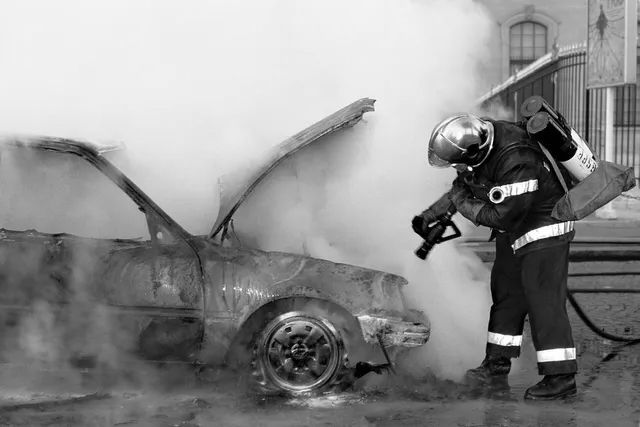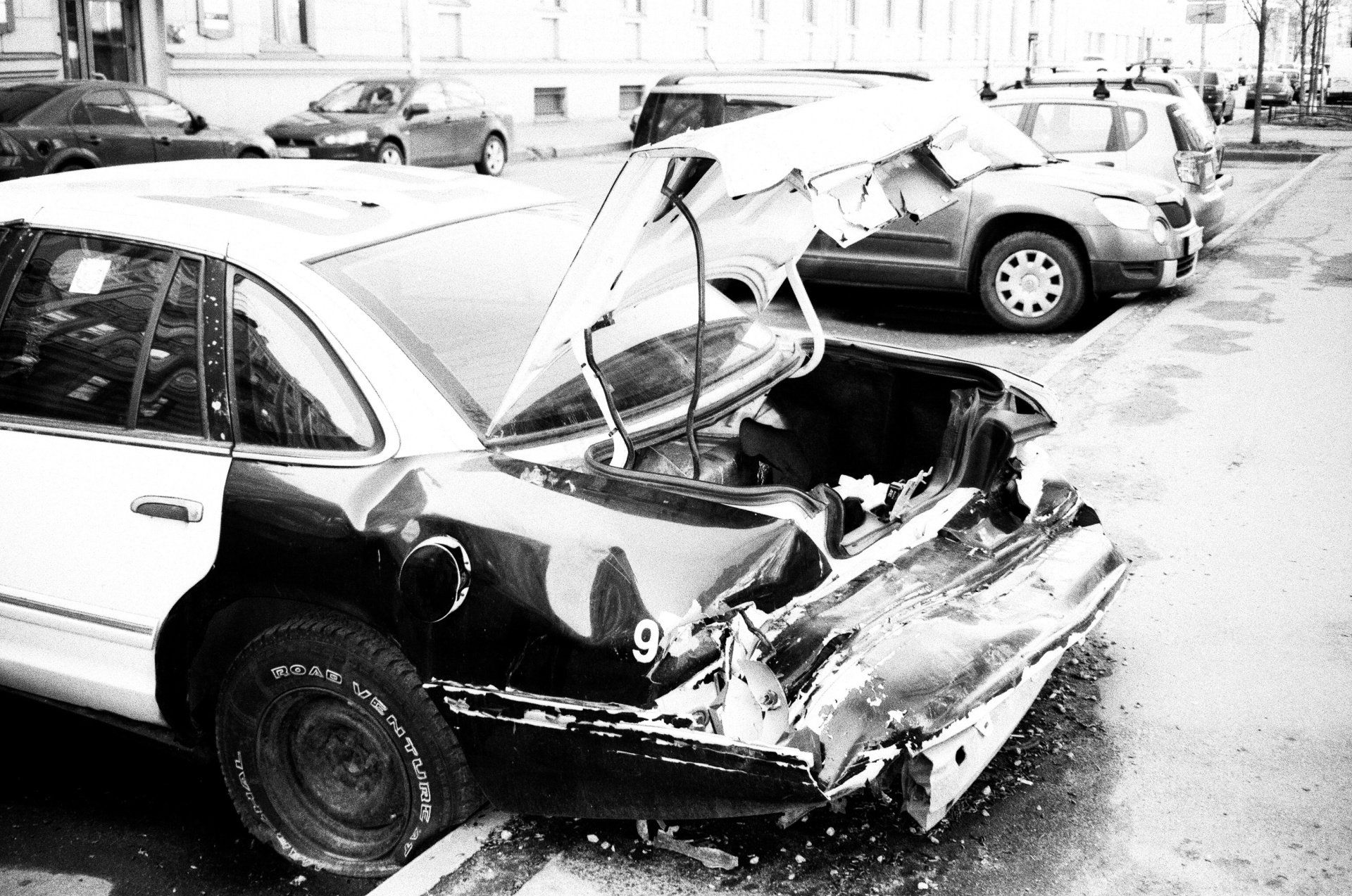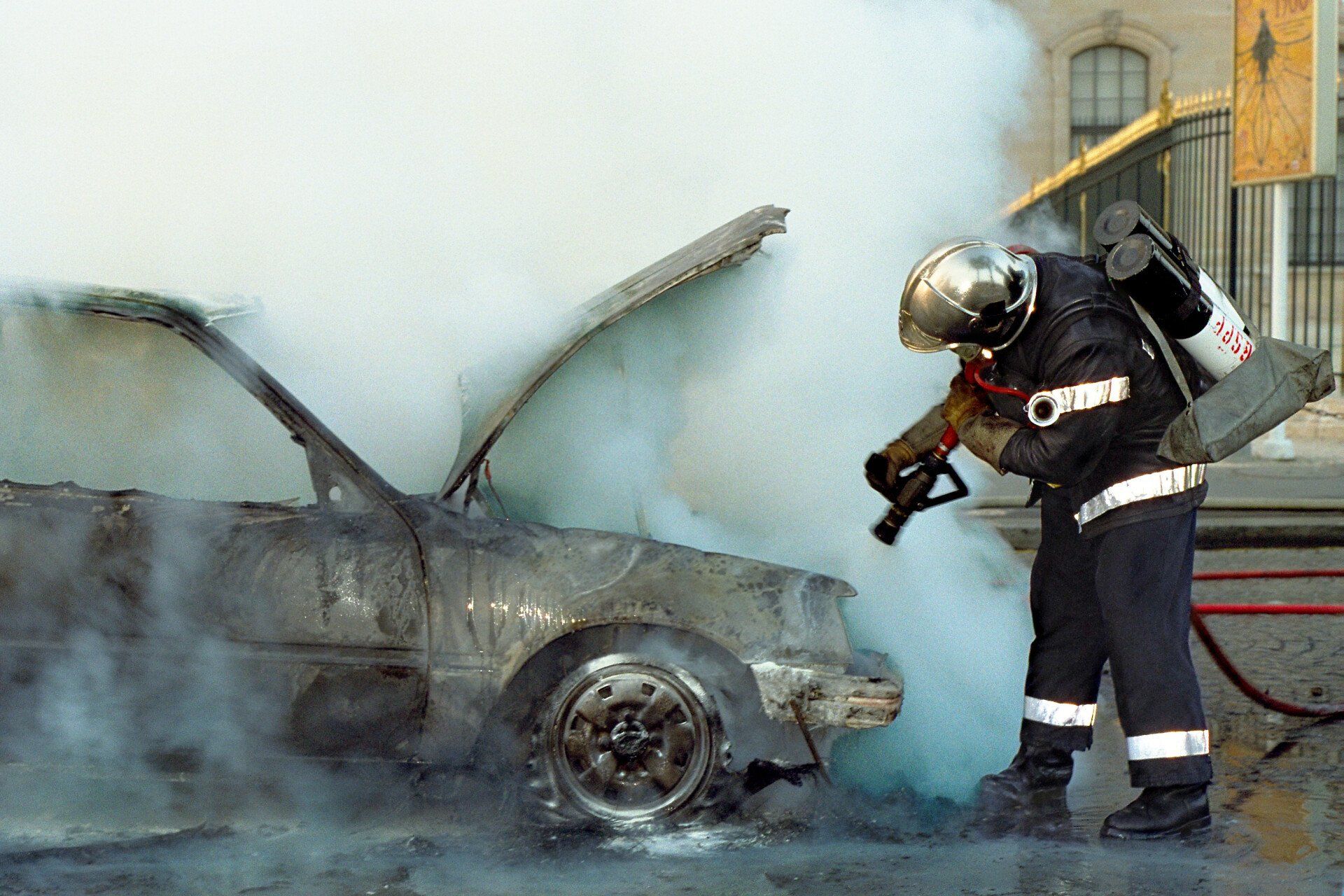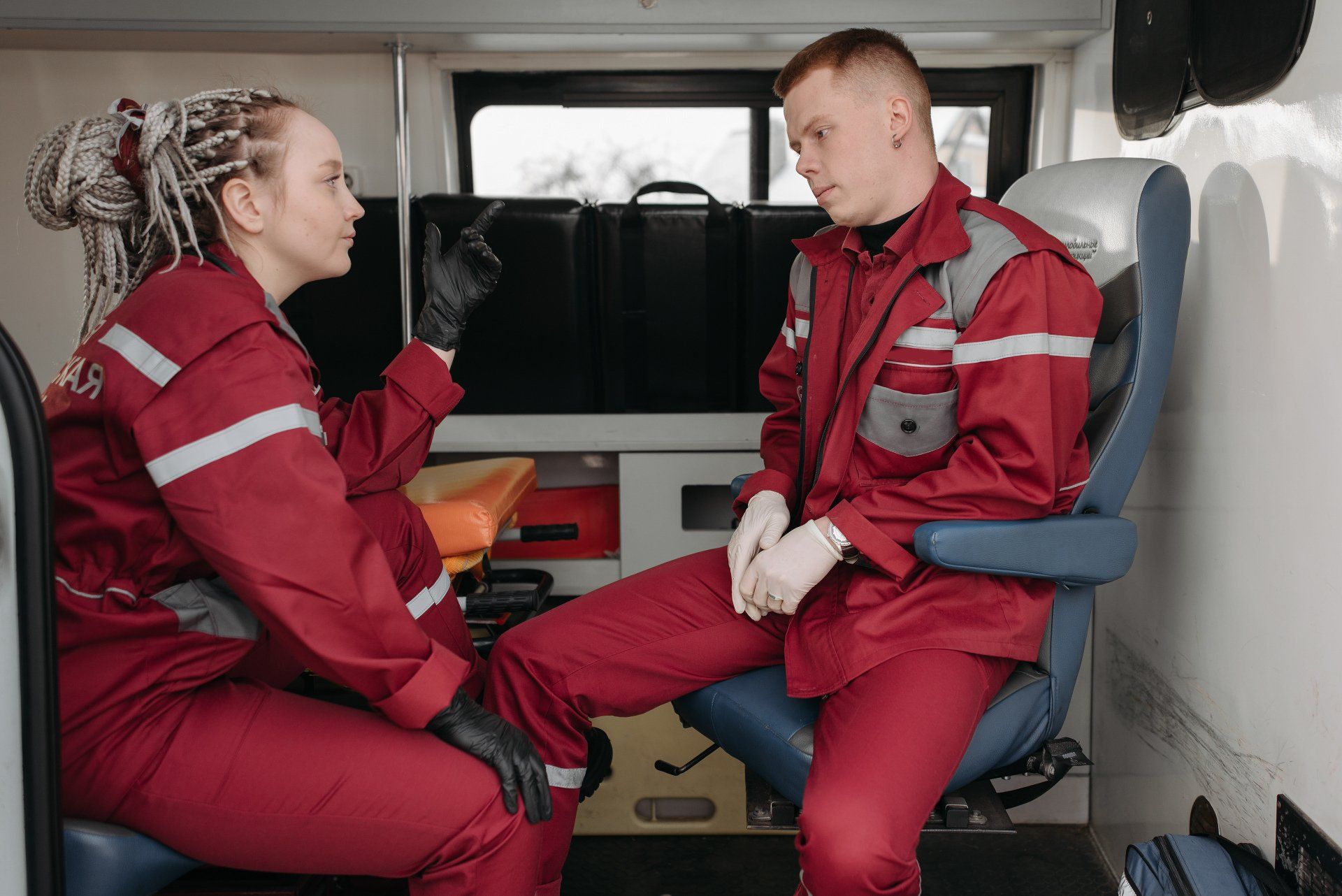


What To Do After A Motor Vehicle Accident
A2X LAW
A motor vehicle accident can be a harrowing experience, causing physical, emotional, and financial distress. In the aftermath of a collision, it's crucial to know the steps to take to protect yourself, your passengers, and your legal rights. This blog post will guide you through the important actions to consider in the wake of a motor vehicle accident.
1. Ensure Safety First
Prioritizing safety immediately after a motor vehicle accident is of paramount importance. In the chaotic aftermath of a collision, the well-being of everyone involved takes precedence. Moving vehicles to a safe location, assessing and addressing injuries, and turning on hazard lights are the initial steps that set the stage for a secure and controlled environment. By safeguarding the physical and emotional health of those involved and alerting others to the accident, you pave the way for a smoother and safer resolution of the situation. Here's what you should do to ensure safety:
- Move to a safe location: If able to, move yourself to a safe location. Vehicle should not be moved unless instructed to by police. Vehicle should remain in place for officers to properly investigate.
- Check for injuries: Assess yourself and your passengers for injuries. If anyone is injured, seek medical assistance immediately by calling 911.
- Turn on hazard lights: Activate your vehicle's hazard lights to alert other drivers to the accident.
2. Contact Law Enforcement
Once you've ensured the safety of all parties, it's essential to contact law enforcement. Even in seemingly minor accidents, involving the police can be essential for creating an official record of the incident. Let's consider an example: You've been involved in a fender-bender at an intersection. Both parties may agree that the damage appears minimal, and it might be tempting to handle the situation privately. However, contacting the police is a prudent choice. They can assess the scene, gather information from all parties and witnesses, and create an official report. This report not only aids in determining liability but also serves as a valuable document for insurance claims and potential legal proceedings. Furthermore, it's often a legal requirement to involve the police in more severe accidents, making it crucial to err on the side of caution and always report the incident.
- Call the police: Even if the accident appears to be minor, it's a good practice to report the incident to the police. A police report can be crucial for insurance claims and legal proceedings.
- Cooperate with the authorities: When the police arrive, provide accurate and honest information about the accident. Avoid admitting fault, as the determination of fault will be based on evidence and investigation.
3. Gather Information
When gathering information at the scene of a motor vehicle accident, meticulous attention to detail is your best ally. This process involves collecting essential data that will play a significant role in resolving insurance claims and potential legal disputes. Consider the following example: You've been rear-ended at a red traffic light. After ensuring everyone's safety, exchange contact information with the other driver, taking note of their name, phone number, and insurance details. Additionally, document the accident scene by taking clear photographs of vehicle damage, skid marks, and any relevant traffic signs or signals. If there are witnesses present, don't forget to gather their names and contact information. All these details serve as valuable pieces of the puzzle, helping establish the facts surrounding the accident and aiding in the claims process or potential legal actions.
- Exchange information: Obtain the names, contact information, and insurance details of the other driver(s) involved.
- Document the scene: Take photos of the accident scene, vehicle damage, road conditions, and any relevant signage or signals.
- Collect witness information: If there are any witnesses to the accident, obtain their names and contact information.
4. Seek Medical Attention
Seeking medical attention promptly after a motor vehicle accident is more than a recommended step—it's a crucial one. Even if you feel fine immediately after the collision, certain injuries may not become apparent until later. Consider this scenario: You've been involved in a side-impact collision, and while you don't experience immediate pain or discomfort, you decide to see a healthcare professional within the next day or two. During the examination, a doctor diagnoses a whiplash injury that could worsen if left untreated. This example underscores the importance of medical attention. Prompt evaluation can detect injuries, prevent their escalation, and provide essential documentation for insurance claims or potential legal actions. By prioritizing your health and well-being, you not only ensure that you receive necessary care but also gather critical medical records to support your case.
- Some injuries may not manifest immediately and could worsen over time.
- Medical documentation can be vital for insurance claims and personal injury cases.
5. Notify Your Insurance Company
Notifying your insurance company promptly after a motor vehicle accident is a fundamental step in initiating the claims process and safeguarding your interests. Imagine this situation: You've been involved in a rear-end collision, and you've ensured everyone's safety, collected information, and assessed damages. The next vital action is to contact your insurance provider. Even if you believe the other driver is at fault and their insurance will cover the costs, promptly reporting the accident to your insurer is a wise choice. In the event of delays, disputes, or complications with the other party's insurance, your provider can step in to assist you. The example underlines the importance of proactive communication with your insurer, ensuring they are informed and prepared to guide you through the claims process efficiently, protecting your rights and potential financial recovery.
- Provide accurate information about the accident.
- Follow their instructions regarding filing a claim.
6. Consult an Attorney
Consulting with an attorney after a motor vehicle accident is a prudent move, particularly when facing complex or disputed circumstances. Picture this scenario: You've been involved in a multi-vehicle accident with multiple parties disputing liability. In such situations, the involvement of an experienced attorney becomes invaluable. An attorney can assess the details of your case, provide legal advice, and represent your interests. Whether it's dealing with insurance companies, negotiating settlements, or pursuing a personal injury lawsuit, an attorney can guide you through the legal complexities, ensuring that your rights are protected. This example underscores the significance of seeking legal counsel, especially in cases with multiple parties or when liability is contentious. An attorney's expertise can make a substantial difference in the outcome of your case, helping you secure fair compensation and justice.
- Help you understand your rights and legal options.
- Represent you in negotiations with insurance companies.
- Advocate for you in a personal injury case if the accident resulted in significant injuries.
In the aftermath of a motor vehicle accident, a clear and organized response can make all the difference. Prioritizing safety, involving law enforcement, gathering information, seeking medical attention, notifying your insurance company, and consulting with an attorney are the key steps that collectively protect your well-being, rights, and potential recovery. Remember, each accident is unique, and the circumstances may vary, but the guidance provided here serves as a foundational roadmap to navigate the often complex post-accident landscape. By taking these measures, you empower yourself to address the challenges and uncertainties that follow an accident, ultimately working toward a resolution that safeguards your interests and well-being. In times of distress, being well-informed and seeking professional guidance are the keys to ensuring that justice and compensation prevail.

What To Do After A Motor Vehicle Accident
A2X LAW
A motor vehicle accident can be a harrowing experience, causing physical, emotional, and financial distress. In the aftermath of a collision, it's crucial to know the steps to take to protect yourself, your passengers, and your legal rights. This blog post will guide you through the important actions to consider in the wake of a motor vehicle accident.
1. Ensure Safety First
Prioritizing safety immediately after a motor vehicle accident is of paramount importance. In the chaotic aftermath of a collision, the well-being of everyone involved takes precedence. Moving vehicles to a safe location, assessing and addressing injuries, and turning on hazard lights are the initial steps that set the stage for a secure and controlled environment. By safeguarding the physical and emotional health of those involved and alerting others to the accident, you pave the way for a smoother and safer resolution of the situation. Here's what you should do to ensure safety:
- Move to a safe location: If able to, move yourself to a safe location. Vehicle should not be moved unless instructed to by police. Vehicle should remain in place for officers to properly investigate.
- Check for injuries: Assess yourself and your passengers for injuries. If anyone is injured, seek medical assistance immediately by calling 911.
- Turn on hazard lights: Activate your vehicle's hazard lights to alert other drivers to the accident.
2. Contact Law Enforcement
Once you've ensured the safety of all parties, it's essential to contact law enforcement. Even in seemingly minor accidents, involving the police can be essential for creating an official record of the incident. Let's consider an example: You've been involved in a fender-bender at an intersection. Both parties may agree that the damage appears minimal, and it might be tempting to handle the situation privately. However, contacting the police is a prudent choice. They can assess the scene, gather information from all parties and witnesses, and create an official report. This report not only aids in determining liability but also serves as a valuable document for insurance claims and potential legal proceedings. Furthermore, it's often a legal requirement to involve the police in more severe accidents, making it crucial to err on the side of caution and always report the incident.
- Call the police: Even if the accident appears to be minor, it's a good practice to report the incident to the police. A police report can be crucial for insurance claims and legal proceedings.
- Cooperate with the authorities: When the police arrive, provide accurate and honest information about the accident. Avoid admitting fault, as the determination of fault will be based on evidence and investigation.
3. Gather Information
When gathering information at the scene of a motor vehicle accident, meticulous attention to detail is your best ally. This process involves collecting essential data that will play a significant role in resolving insurance claims and potential legal disputes. Consider the following example: You've been rear-ended at a red traffic light. After ensuring everyone's safety, exchange contact information with the other driver, taking note of their name, phone number, and insurance details. Additionally, document the accident scene by taking clear photographs of vehicle damage, skid marks, and any relevant traffic signs or signals. If there are witnesses present, don't forget to gather their names and contact information. All these details serve as valuable pieces of the puzzle, helping establish the facts surrounding the accident and aiding in the claims process or potential legal actions.
- Exchange information: Obtain the names, contact information, and insurance details of the other driver(s) involved.
- Document the scene: Take photos of the accident scene, vehicle damage, road conditions, and any relevant signage or signals.
- Collect witness information: If there are any witnesses to the accident, obtain their names and contact information.
4. Seek Medical Attention
Seeking medical attention promptly after a motor vehicle accident is more than a recommended step—it's a crucial one. Even if you feel fine immediately after the collision, certain injuries may not become apparent until later. Consider this scenario: You've been involved in a side-impact collision, and while you don't experience immediate pain or discomfort, you decide to see a healthcare professional within the next day or two. During the examination, a doctor diagnoses a whiplash injury that could worsen if left untreated. This example underscores the importance of medical attention. Prompt evaluation can detect injuries, prevent their escalation, and provide essential documentation for insurance claims or potential legal actions. By prioritizing your health and well-being, you not only ensure that you receive necessary care but also gather critical medical records to support your case.
- Some injuries may not manifest immediately and could worsen over time.
- Medical documentation can be vital for insurance claims and personal injury cases.
5. Notify Your Insurance Company
Notifying your insurance company promptly after a motor vehicle accident is a fundamental step in initiating the claims process and safeguarding your interests. Imagine this situation: You've been involved in a rear-end collision, and you've ensured everyone's safety, collected information, and assessed damages. The next vital action is to contact your insurance provider. Even if you believe the other driver is at fault and their insurance will cover the costs, promptly reporting the accident to your insurer is a wise choice. In the event of delays, disputes, or complications with the other party's insurance, your provider can step in to assist you. The example underlines the importance of proactive communication with your insurer, ensuring they are informed and prepared to guide you through the claims process efficiently, protecting your rights and potential financial recovery.
- Provide accurate information about the accident.
- Follow their instructions regarding filing a claim.
6. Consult an Attorney
Consulting with an attorney after a motor vehicle accident is a prudent move, particularly when facing complex or disputed circumstances. Picture this scenario: You've been involved in a multi-vehicle accident with multiple parties disputing liability. In such situations, the involvement of an experienced attorney becomes invaluable. An attorney can assess the details of your case, provide legal advice, and represent your interests. Whether it's dealing with insurance companies, negotiating settlements, or pursuing a personal injury lawsuit, an attorney can guide you through the legal complexities, ensuring that your rights are protected. This example underscores the significance of seeking legal counsel, especially in cases with multiple parties or when liability is contentious. An attorney's expertise can make a substantial difference in the outcome of your case, helping you secure fair compensation and justice.
- Help you understand your rights and legal options.
- Represent you in negotiations with insurance companies.
- Advocate for you in a personal injury case if the accident resulted in significant injuries.
In the aftermath of a motor vehicle accident, a clear and organized response can make all the difference. Prioritizing safety, involving law enforcement, gathering information, seeking medical attention, notifying your insurance company, and consulting with an attorney are the key steps that collectively protect your well-being, rights, and potential recovery. Remember, each accident is unique, and the circumstances may vary, but the guidance provided here serves as a foundational roadmap to navigate the often complex post-accident landscape. By taking these measures, you empower yourself to address the challenges and uncertainties that follow an accident, ultimately working toward a resolution that safeguards your interests and well-being. In times of distress, being well-informed and seeking professional guidance are the keys to ensuring that justice and compensation prevail.
FOR YOU
A LEGAL BLOG
FOR YOU
A LEGAL BLOG
BY A2X LAW | SEP 25, 2023
Get the lowdown on the Fair Labor Standards Act (FLSA) - the foundation of workers' rights.












